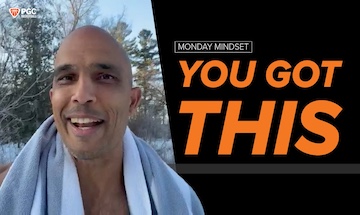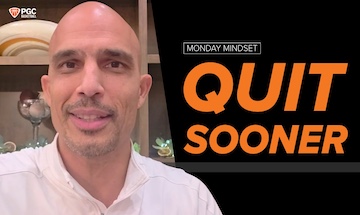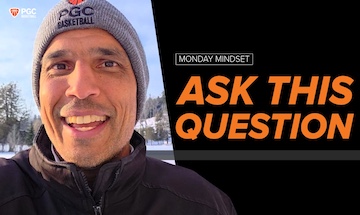Four Things I Learned from Duke’s Coach Krzyzewski
Each year, the PGC directors and I travel North America seeking out opportunities to learn from some of the top basketball minds out there. On one of our trips, we coined ‘The Tobacco Road Tour’, we visited practices at schools like Duke, North Carolina, Wake Forest, and NC State. We engaged with the basketball coaches and players, picking up the little things that make the championship-level teams so special. We were truly honored to be with all the people we interacted with and appreciated their assistance in making it such a rewarding experience.
While all the basketball coaches were special and very talented at what they do, there was something different – something extraordinary – about the way Coach Krzyzewski at Duke ran his basketball practices. Here are some bullet points I took away from the practices he ran. They are so fitting to share, given that he led his team to yet another NCAA National Championship in 2010:
Precision is a Way of Life
On the top of the sheet for their practice plan was written in big bold letters, “P R E C I S I O N”. We were excited about the emphasis on precision at such a high level: the concept of having a ridiculous attention to detail is one of the six core values we have at PGC. The whistles were perfectly lined up on the scorer’s table for the coaching staff, the managers stood at attention with a towel over one shoulder and a ball in the other hand, and the strength and conditioning coach had each mat for their dynamic warm-up perfectly laid out on the court. This carried over to the court where the players executed each drill with great attention to detail and rarely had to be told things twice. We are all creatures of habit. The precision taking place off the court transferred to the precision on the court as well.
One Voice is Powerful
Coach K’s staff did a phenomenal job of knowing when it was time to speak up and who ‘owned’ that particular opportunity to say something. At other practices I’ve seen, assistant coaches, managers, and the head coach are all providing the athletes with feedback, reminders, and praise, at the same time. This can cause confusion for the athletes, not knowing who to listen to and at what time. Imagine how important this is for end of game situations and timeouts. The preparation taking place at practice for the athletes hearing one voice probably helped them down the stretch in critical, pressure-filled moments. It was not a barrage of voices, but instead a smooth sailing ship with one captain pointing his team in the right direction. The others knew the time and the place to supplement information for the athletes, but it was always and only one voice that spoke at any time.
Whistles Are In
Coach K and his staff each wore a whistle around their necks. But more impactful was the use of the whistle. After attending many practices over the years I’ve seen injuries happen because athletes were unaware that play had stopped. However, at Duke, they use a whistle to initiate and then finish a drill. As soon as that ending whistle is blown, play stops. It’s a little thing, but highly effective with players and allows for complete control of the action taking place on the court.
Procedures Are Effective
In line with the great precision Coach K demands of not only his team and program, which includes managers, staff, and other personnel involved with the team, there were a definite set of procedures the team understood happened ‘every’ and ‘always’. Dick DeVenzio used to refer to this concept of creating procedures that your team should do every time they are in the gym and at an ‘always’ rate, not a sometimes thing. The shirts were tucked in, the players knew how to line up on the baseline, and even the obtaining of water was a set, routine procedure. This allows for more coaching and teaching, and less telling. There is a difference between teaching and telling. High level coaches, like Coach K, are teachers, providing useful information in a variety of ways and creating engagement with the athletes. Coach K and his staff no longer had to tell their athletes repeatedly to do something. They understood the procedures, and as a result, time wasn’t wasted on mundane tasks.
I encourage you as either a coach or a basketball player to consider implementing some of these key thoughts above into your practices and basketball training. It will take time, it will take persistence, but most importantly it will take a commitment to be someone better than you already are. None of the prior three statements are easy. But hey, winning four (4) NCAA national championships isn’t a walk through the park either!
Related Articles
Monday Mindset: You Got This
Every morning starts with one hard thing, and one simple reminder: You got this. Whatever challenge is in front of you, speak confidence into it. Push forward. Trust yourself.
Monday Mindset: Quit Sooner
Winners don’t always hang on, they know when to quit sooner.
Monday Mindset: Ask This Question
Make today your masterpiece by adding value to yourself, your work, and the people around you.
About PGC
PGC Basketball provides intense, no-nonsense basketball training for players and coaches. Our basketball camps are designed to teach players of all positions to play smart basketball, be coaches on the court, and be leaders in practices, games and in everyday life.
We combine our unique PGC culture with a variety of teaching methods and learning environments to maximize the learning potential of those that attend our sessions. In addition to spending 6-7 hours on the court each day, lessons will be reinforced through classroom sessions and video analysis.
Our goal at PGC is to empower you with the tools to fulfill your basketball dreams, while also assisting you in experiencing the joy of the journey.
To learn more about PGC Basketball, including additional basketball training tips and videos, visit our YouTube Channel or find us on Facebook, Instagram, and Twitter.















Share This Post